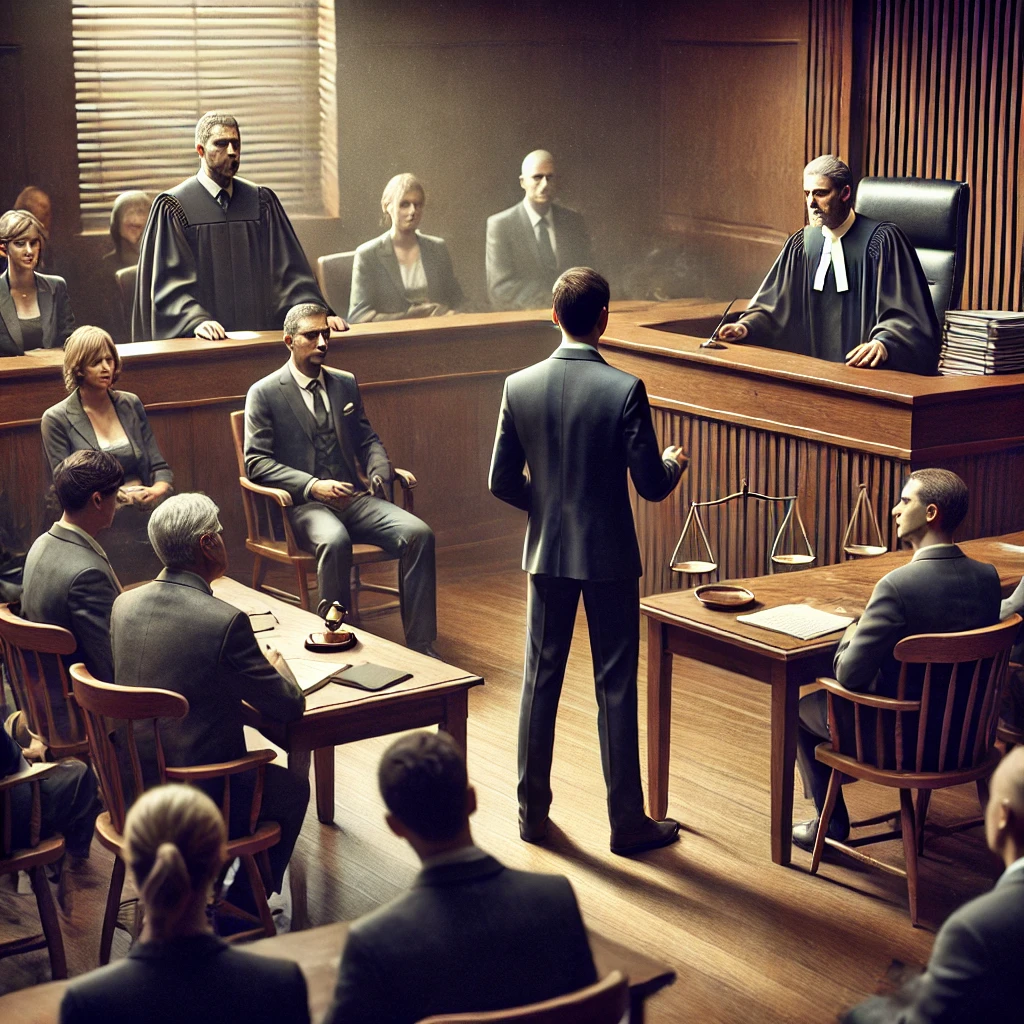Uncategorized
Courtroom Drama: A Criminal Law Case in Session

Criminal law is a branch of law that deals with crimes and their punishments. It governs the prosecution of individuals or entities accused of committing acts that are considered offenses against the state or society at large. Criminal law covers a wide range of offenses, from minor infractions to serious felonies.
Key Aspects of Criminal Law:
- Types of Crimes:
- Felonies: Serious crimes such as murder, rape, robbery, and drug trafficking, which carry heavier penalties, including long-term imprisonment or death in some jurisdictions.
- Misdemeanors: Lesser offenses such as petty theft, disorderly conduct, and minor assault, typically punishable by fines or shorter jail terms.
- Infractions: Minor violations, like traffic tickets, which usually result in fines without jail time.
- Elements of a Crime:
- Actus Reus (The Act): The physical act or unlawful behavior that constitutes a crime.
- Mens Rea (The Intent): The mental state or intention to commit a crime. For most crimes, both actus reus and mens rea must be present.
- Criminal Procedure:
- Investigation: Law enforcement investigates alleged criminal activity, gathering evidence and identifying suspects.
- Arrest: The suspect is taken into custody by the police if there is probable cause to believe they committed a crime.
- Prosecution: The government, through a prosecutor, brings formal charges against the defendant in a court of law.
- Trial: Both the prosecution and defense present evidence and arguments to prove or disprove the defendant’s guilt. A judge or jury decides the outcome.
- Sentencing: If convicted, the defendant is sentenced based on the severity of the crime and other factors, such as criminal history.
- Punishments:
- Fines: Monetary penalties for lesser crimes or infractions.
- Incarceration: Imprisonment in jail or prison for a set period.
- Probation: Allowing the offender to remain in the community under supervision instead of serving jail time.
- Parole: Early release from prison under certain conditions.
- Capital Punishment: In some jurisdictions, certain crimes like murder may result in the death penalty.
- Defenses in Criminal Law:
- Self-Defense: Arguing that the defendant acted to protect themselves from harm.
- Insanity: Claiming that the defendant was mentally incapable of understanding the nature of their actions.
- Duress: The defendant was forced to commit the crime under threat of harm.
- Entrapment: The claim that law enforcement induced the defendant to commit a crime they otherwise would not have committed.
Roles in a Criminal Case:
- Prosecutor: Represents the government and seeks to prove the defendant’s guilt.
- Defense Attorney: Represents the accused and aims to defend against the charges or lessen the punishment.
- Judge: Oversees the trial, ensures legal procedures are followed, and may determine the sentence.
- Jury: In some cases, a group of citizens determines the defendant’s guilt or innocence based on evidence.
Criminal law aims to protect society, deter criminal behavior, and rehabilitate offenders while balancing the rights of the accused to ensure justice is fairly administered.